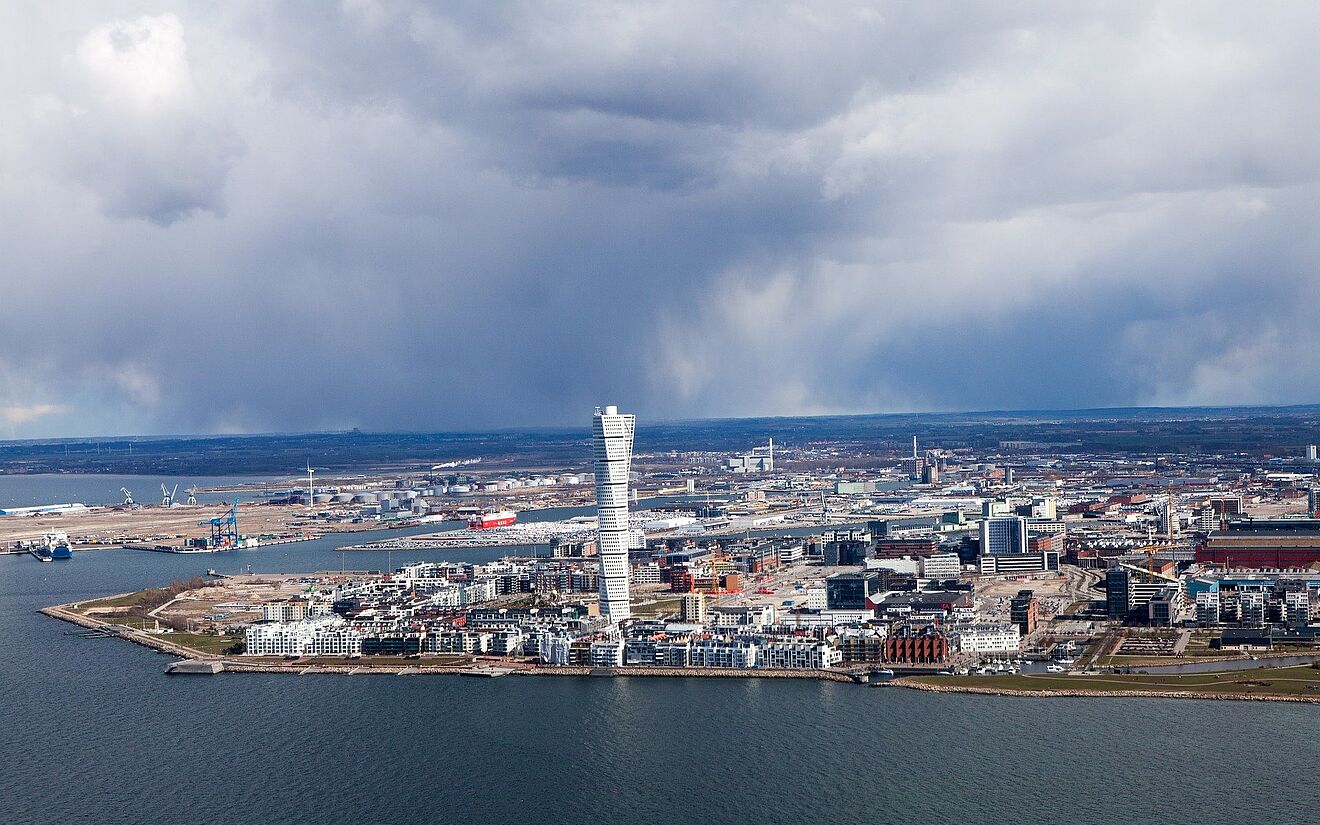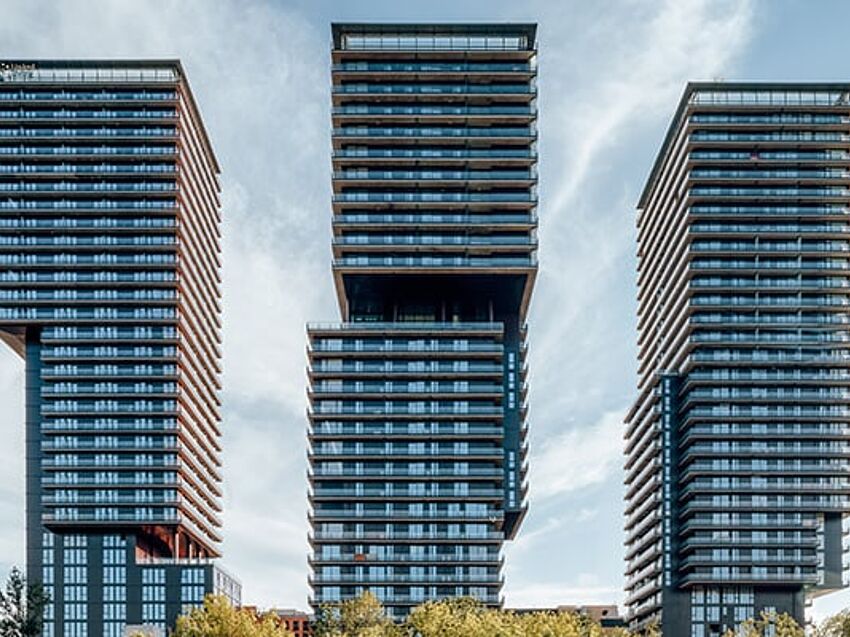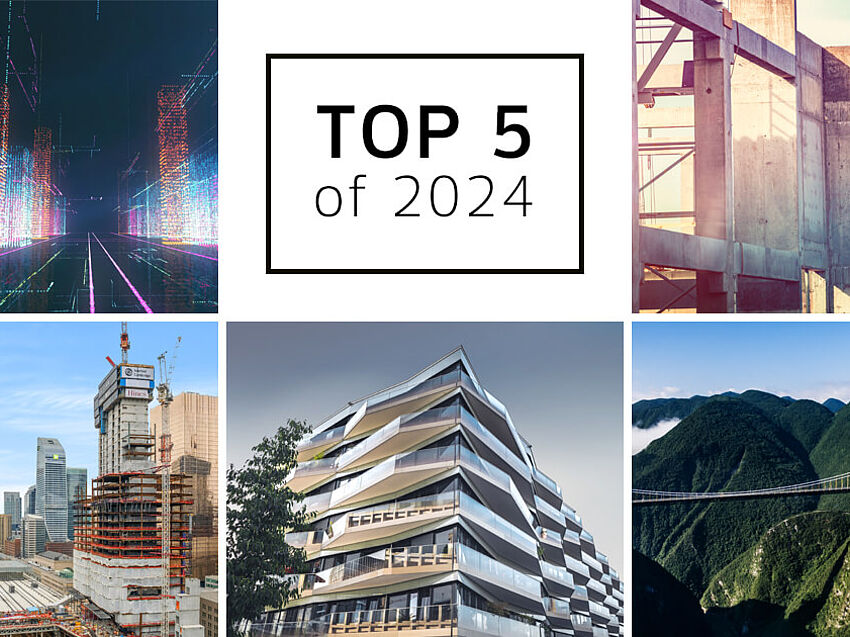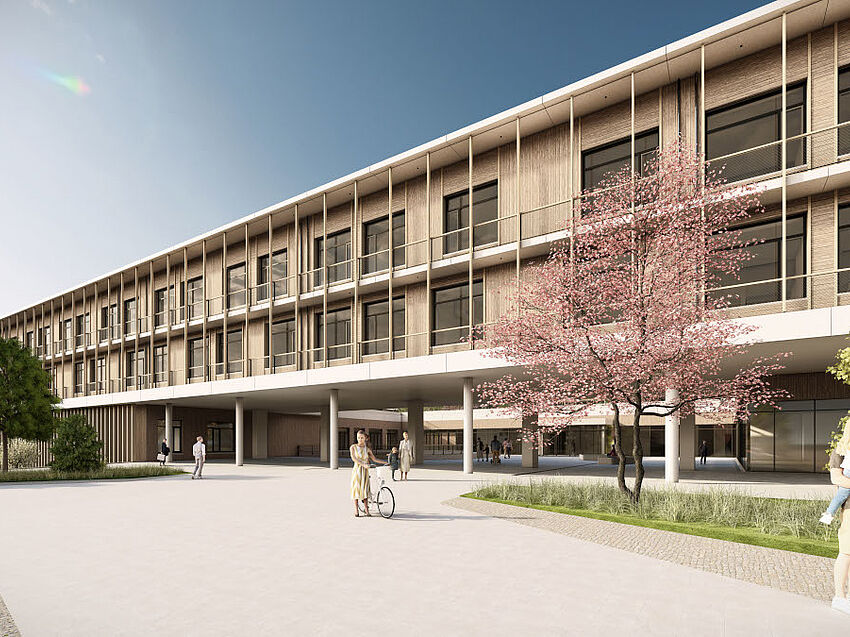Our cities are growing all the time. The United Nations forecast that in 2050 approximately 70 percent of the world’s population will be living in urban areas. And the challenges to urban planning are just as large as the mega cities themselves. Sustainability and quality of life are among the chief objectives for ensuring social and economic stability. In our series “The city of the future” we outline for you innovative real concepts. Starting off with Malmö in Sweden which occupies fourth place in the OECD list of the world’s most innovative cities.
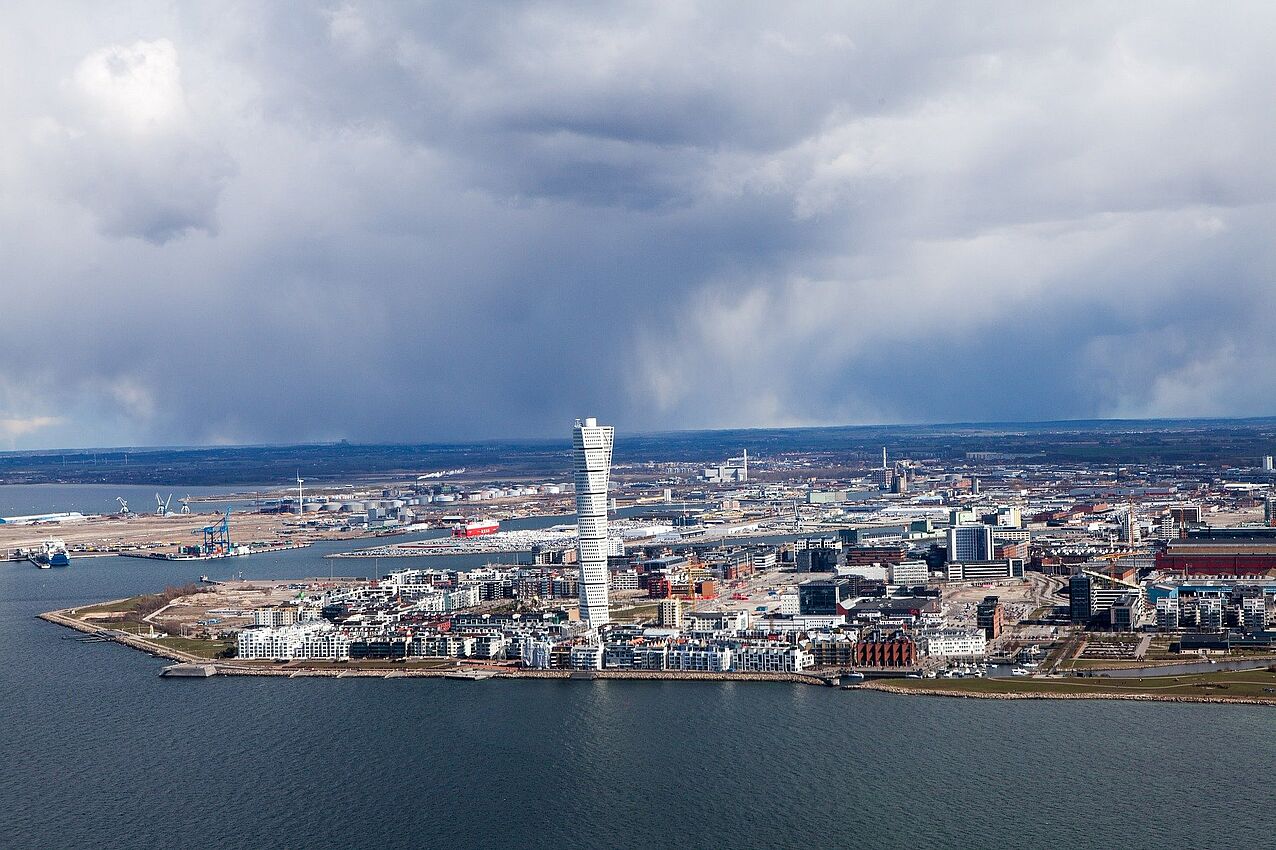
Environmental protection, economic efficiency and social progress
What form does sustainability take in genuine city life? And what requirements have to be met? Environmental protection, economic efficiency and social progress are central objectives. This includes renewable energies, space efficiency, innovative mobility concepts and environmentally-friendly urban transport and also regional food, sustainable water supplies and complete waste recycling - complex challenges for urban planning.
Project West Harbour: the first climate-neutral urban area in Sweden
Malmö has been taking up these challenges since 2000 with the West Harbour building project, a former industrial site which is set to become the first climate-neutral urban area in Sweden by 2025. It will be supplied 100 percent using local energy from wind, solar and biogas resources. The power comes from the nearby offshore Lillgrund wind park in Öresund. Solar panels, heat pumps and groundwater and marine water are used for heating and cooling. Altogether, there will be work, living and study space to accommodate up to 12,000 residents.
The good dialogue
Malmö has reinvented itself with the West Harbour and shaken off the old-fashioned image of the industrial city. When the “Kockums Shipyard”, Malmö’s largest employer at the time, closed its locks at the end of the 1980s the city bought the site. It awarded contracts to real estate firms which presented particularly innovative sustainability concepts. Under the motto “The good dialogue” all involved partners found solutions together. This yielded, amongst others, the residential tower “Turning Torso” by Spanish architect Santiago Calatrava. The energy efficient building spirals up 190 metres like a corkscrew and is regarded as the city’s landmark.
Social integration creates sustainability
Although the criteria for a sustainable new beginning in the West Harbour were ideal, the upgrade and renovation of existing city districts and areas such as Rosengård proved problematic. Here, the city planners relied up on dialogue with residents from the outset. They organized workshops in order to understand the needs of the residents better and to find solutions together how the social structure can be improved. Today there are rows and rows of vegetable gardens in the style of Urban Farming in what were once neglected back yards.
Mobility in Malmö
Malmö has a 500-km long cycling network. Every fourth journey is undertaken on two wheels - this equates to 25 percent of the total traffic. In addition, Malmö is the first city in Sweden which makes it compulsory for households to keep organic waste. This is then collected and converted into biogas. The buses in Malmö already run using 100 percent renewable fuel.
Sustainable food culture, sustainable consumption
In Malmö’s school canteens and kindergartens the city serves healthy bio dishes which have been produced in a climate-friendly way and come from the local area. By 2020, all food provided by the city’s welfare system shall be sustainable. This also applies to consumer behaviour: many retailers supply Fairtrade goods. Plus, more than 200 companies have introduced the “ethical coffee break” in which employees only drink coffee from a socially acceptable source.
We are all needed
With the proposed measures and initiatives Malmö is assuming a pioneering role in sustainable urban development. An important reason for the success lies in particular in the inclusion of the residents. Not for nothing was the motto for the 2013 annual report by the commission for a sustainable Malmö: “There is no reason to exist if one is not needed for something. Therefore, a society must be organized in such a way that everyone is needed. We demand to be needed!”
